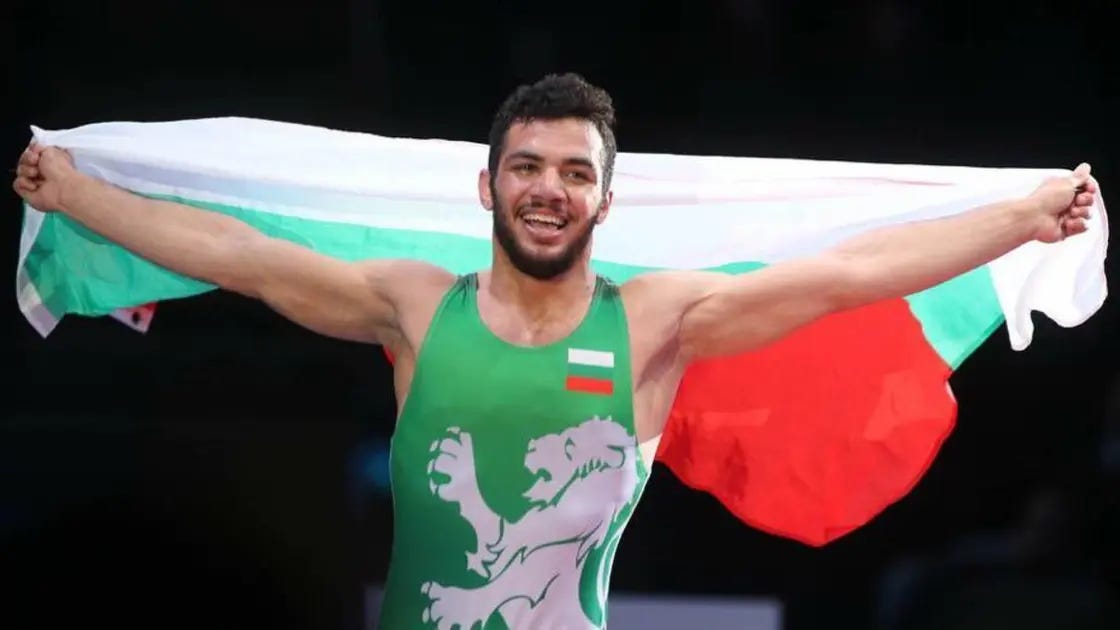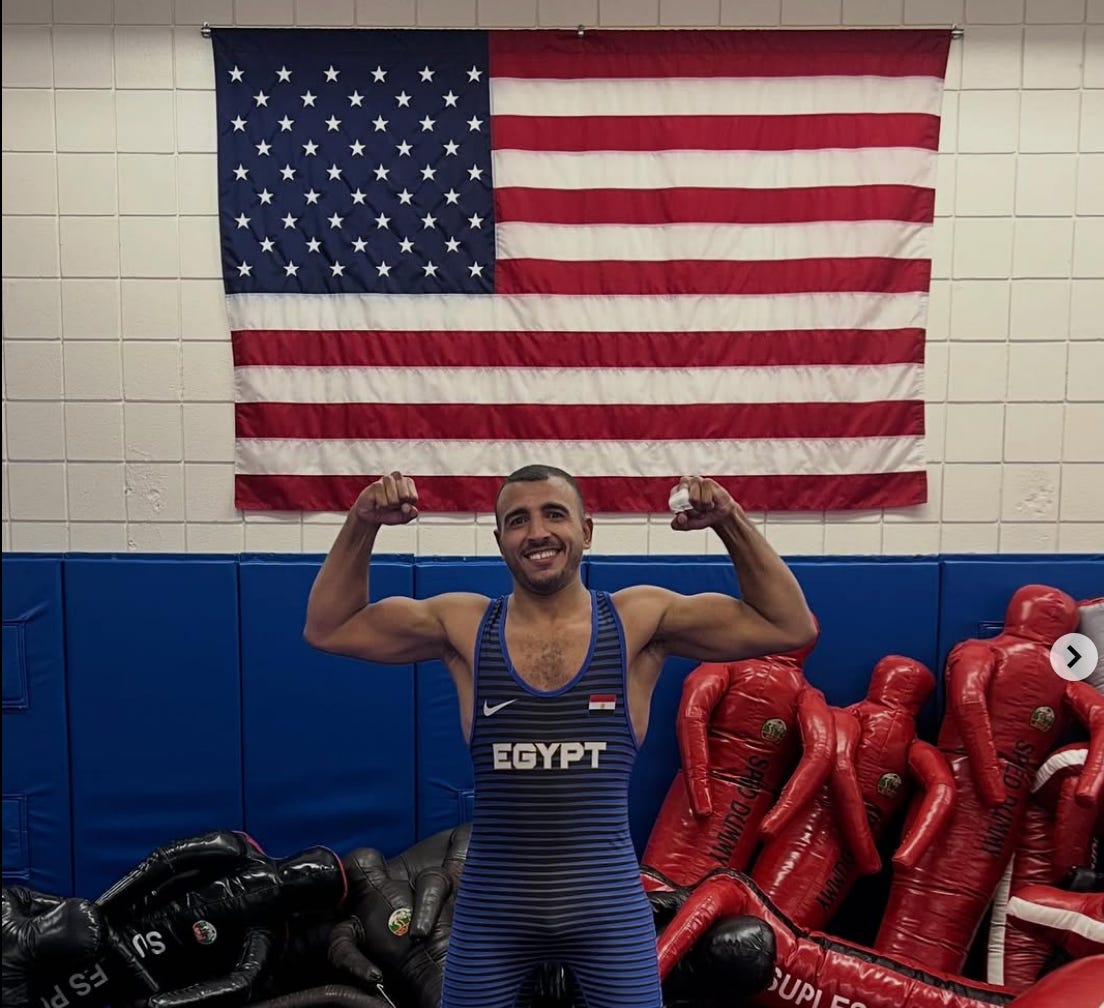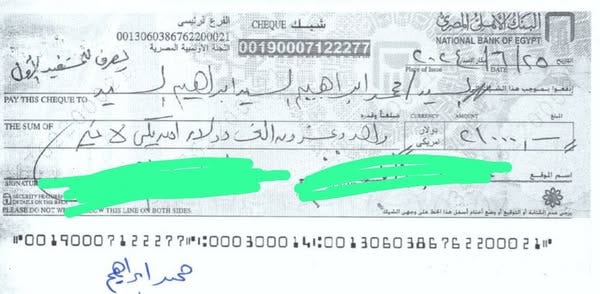Flight from Egypt
Neglected and disillusioned, an Egyptian Olympic medalist turned to the U.S. — part of a wider exodus of talent reflecting Egypt’s deeper woes.
Welcome to Sports Politika, a media venture founded by investigative journalist and researcher Karim Zidan that strives to help you understand how sports and politics shape the world around us. My mission is to offer an independent platform for accessible journalism that raises awareness and empowers understanding.
If you share this vision, please consider supporting my work by joining becoming a paid subscriber. I am currently running a special offer whereby you can secure a subscription at a 40% discounted price…forever.
“There is no dignity for Egypt’s champions.”
So said Mohamed Ibrahim El Sayed, the Egyptian Olympic bronze medalist in Greco-Roman wrestling, during an Oct. 18 appearance on the popular “Cairo Talk” program.
El Sayed — nicknamed “Kesho” for his stocky build and power — faced intense scrutiny and criticism in his homeland after announcing his intention to represent the United States at the upcoming Olympic Games. He cited severe mistreatment and neglect by Egypt’s sports institutions as the reason behind his decision. This interview marked his first public appearance since making the announcement.
“After I won the Olympic medal, no one helped me,” Kesho explained to host Karima Awad. “I do not have a fixed salary from the union, nor support from Ministry of Sports.”
A five-time African champion in Greco-Roman wrestling, Kesho burst onto the global stage in Tokyo, where he secured a bronze medal in the 67 kg class by upsetting 2018 world champion Artem Surkov of Russia. His victory was one of six Olympic medals for Egypt that year and ended the country’s nine-year wrestling drought.
Despite becoming only the eighth Egyptian wrestler ever to win an Olympic medal, Kesho’s road back to a second podium was anything but smooth. A bitter dispute with the Egyptian Wrestling Federation kept him sidelined for nearly 18 months after Tokyo. When he finally returned in 2023, he stumbled early — bowing out in the round of 32 at the World Championships — before clawing his way back to qualify for Paris 2024 with a hard-fought bronze at a last-chance tournament in May.
In Paris, his campaign came to an abrupt end following a round-of-16 defeat to Azerbaijan’s Hasrat Jafarov. Controversy followed when French police detained him in August 2024 over an allegation that he groped a woman in a bar. Prosecutors dropped the case for lack of evidence, but Egypt’s Olympic Committee (EOC) nevertheless suspended him for breaching team rules by failing to return to camp that night.
After a lengthy absence from the mat, Kesho announced his retirement from wrestling in July 2025, citing ongoing battles with injury. The decision, however, proved short-lived. By October, he was posting photos of himself training at the U.S. Olympic and Paralympic Training Center. In a subsequent interview, he revealed that he had begun the process of switching his sporting nationality to the United States — a move he said was driven by years of broken promises and a lack of support from Egyptian sports authorities.
“I have no problem with Egypt as a country. I grew up here, achieved many titles, and raised its flag proudly,” Kesho told Al Ahly TV. “My problem is with the sports management.
Kesho explained that he had been denied access to training facilities at Egypt’s Olympic Centre and received little financial backing despite his record of achievements. “I’m an Olympic medallist and 13-time African champion, but I earn 1,500 Egyptian pounds ($31) a month. Is that fair?” he said.
Kesho’s decision to switch allegiance to the U.S. was met with staunch anger within Egypt, with fans questioning his pride and loyalty towards his country. Others sympathized with his plight and were understanding about his reasons for representing the U.S.. The Egyptian government, meanwhile, feared a national embarrassment and decided to take action.
Last week, Egypt’s Ministry of Youth and Sport launched a campaign to combat what it has termed the “illegal naturalization” targeting its athletes. The ministry claimed that “certain foreign entities” are attempting to recruit and naturalize Egyptian athletes through unlawful means.
“These practices have provoked widespread outrage within both Egyptian and African sporting circles, as they constitute a flagrant violation of Olympic values and contravene international regulations governing athlete transfers,” said Egypt’s Minister of Youth and Sports, Ashraf Sobhi.“Moreover, such actions amount to a form of illegal migration and human trafficking, exploiting the social vulnerabilities of our young athletes.”
While the minister did not reference Kesho by name, he revealed that he had contacted Egyptian sporting bodies, as well as international entities such as the African Wrestling Confederation, and the International Wrestling Federation “demanding an immediate halt to any illegal naturalization attempts involving Egyptian athletes.”
At the same time, state-aligned media outlets such as Sada El-Balad published critical reports about Kesho. Citing unnamed sources within the Egyptian Wrestling Federation, the pieces claimed that he had received financial support totaling roughly 12 million Egyptian pounds (about $252,500) over the years and that his monthly stipend from the federation was 55,000 pounds (around $1,160). One article even included a scan of a physical cheque in Kesho’s name for $21,000, though the source of the payment was redacted.
While Kesho may have triggered the government’s wrath because of his status as an Olympic medalist, he isn’t the only Egyptian athlete to switch nationalities because of issues with the country’s sporting bodies. Ibrahim Ghanem, a continental Greco-Roman wrestling champion who also medaled for Egypt at the World Military Games, has been representing the French national team since 2020. He most recently won the gold medal at the 2023 World Wrestling Championships.
In August 2022, 17-year-old wrestler Mohamed Essam fled the Egyptian national team following the World Junior Wrestling Championship in Italy. He reportedly told his coach that he was going to buy something and return. Instead, he disappeared, leaving his belongings and his passport behind.
While an official investigation never confirmed why Essam fled, residents of Malig, the small village in the Egyptian province of Menoufia where Essam is from, told Sky News Arabia that many of the village’s young men had also escaped to Italy through illegal means in the past in search of a better life across the sea.
The exodus continued during the 2023 African Wrestling Championship in Tunis, where Egyptian wrestling champion Ahmed Baghdouda escaped from the Egyptian camp and fled to France just one day after winning a silver medal at the tournament. The incident became a national scandal, stirring debate about the state of Egyptian sports.
While some news sites labeled Baghdouda a “fugitive” for his actions, others expressed sympathy for his situation. One outlet even contacted his father — a humble tuk-tuk driver — to shed light on his son’s decision to flee.
“Ahmed was sad,” his father said. “Nobody cared about him. During the championship, he had a knee injury and didn’t receive proper medical support. Yet he still competed.”
The Egyptian Wrestling Federation was referred to the public prosecution for investigation, but little action followed. During a session in parliament, EWF president Essam El-Nawar defended the federation’s stance, saying that “sympathizing with him only encourages others to do the same.”
And then there is Tarek Abdelsalam, a talented wrestler who used to compete for Egypt before suffering a serious neck injury. The Egyptian Wrestling Federation refused to pay for his treatment so he retired and moved to Bulgaria, where he worked at a shawarma restaurant in order to cover the cost of his treatment. Local officials learned of his story and offered him citizenship and medical support in exchange for representing Bulgaria in international competitions. A few months later, Abdelsalam won gold at the European championship.

Ibrahim Adel, a member of the EWF at the time, later admitted that the federation failed Abdelsalam. “We have neglected Tarek and ignored his treatment, and we cannot hold the player accountable for getting the Bulgarian citizenship and playing for the Bulgarian team. We pushed him towards those who cared for him and his talent.” he said.
The problems extend far beyond wrestling. Egyptian Weighlifer Fares El Bakh—known as Mido Hassouna—acquired Qatari citizenship and won a gold medal at the 2020 Tokyo Olympics, an incident that was especially embarrassing for the government given the political dispute with Qatar at the time. While Hassouna’s father, Ibrahim, represented Egypt in weightlifting at three consecutive Olympics from 1984 to 1992, Mido instead became Qatar’s first Olympic champion, regardless of sport.
Even squash, a sport which Egypt dominates, has not been immune to this exodus. Mohamed El Shorbagy, a former world no. 1 ranked player and world squash champion, switched to represent England in June 2022. He has since won numerous championships for his new country.
Last month, Egyptian grandmaster and five-time African chess champion Shrook Wafa announced that she would be representing Ireland moving forward, citing corruption within the Egyptian Chess Federation.
The federation, led by military general Mokhtar Amara, responded by suspending Wafa and referring her to investigation for unfounded accusations against the federation. He later told Egyptian media that “some people opposed to the Federation’s policy are working to incite some players and officials and stir up rumours against the federation to achieve personal interest.”
It was only after Sports Minister Ashraf Sobhi intervened — assuring Wafa that she had the government’s full support — that she reportedly agreed to continue representing Egypt in all competitions. All charges against her were subsequently dropped.
There are countless examples of Egyptian athletes seeking greener pastures abroad. Chronic underfunding and mismanagement have left the country’s sports federations struggling to retain elite talent, and years of economic hardship and a deepening currency crisis have only compounded the problem. But the exodus of athletes is part of a much broader phenomenon: the mass migration of Egyptian professionals — doctors, engineers, lawyers, academics, and others — who are leaving in pursuit of better opportunities. From Gulf hubs like Riyadh and Dubai to Western capitals such as London, New York, and Toronto, Egyptians are yearning for a life beyond the constraints of home. In many ways, those of us in the diaspora can relate to Kesho and the others who chose to leave.
“We are Egypt’s heroes — we’ve carried its name proudly on the world stage but we face neglect,” Kesho said near the end of his interview on Saturday. “It’s all promises and painkillers.”
Sports Politika is a media platform focusing on intersection of sports, power and politics. Support independent journalism by upgrading to a paid subscription ( or gift a subscription if you already have your own). We would appreciate if you could also like the post and let us know what you think in the comment section below.




